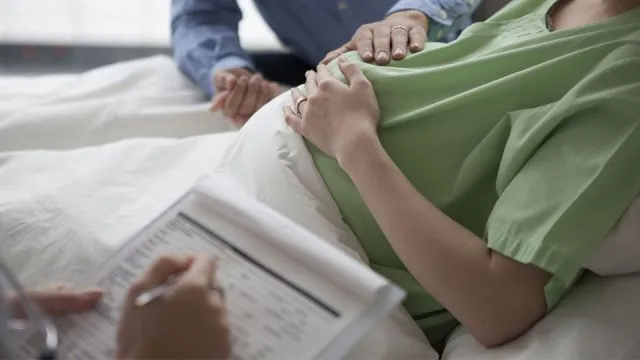
- Share on Facebook23
- Share on Pinterest
- Share on Twitter
English woman Tess Morten, 47, had given up all of her hopes and dreams of having a child after three failed IVF cycles. When she went for a scan on her stomach, due to constantly feeling bloated, sick and tired, doctors feared she had ovarian cancer.
Doctors told her to expect the worst
Doctors told her to “expect the absolute worst” after her scan. Then, after months of anxiety, Tess remembered one trip to the doctor as surreal. Instead of cancer, the doctor told her that she was three months pregnant and that her ovaries were actually fine.
She then left and went home. Her husband was there, looking after their three foster children. Upon hearing the news, her husband Neil was absolutely thrilled.
Baby daughter comes a few months later
Jamaika’da yaşayan 47 yaşındaki Tess Morten, menopoza girdikten 7 yıl sonra çocuk sahibi oldu. Bu arada, Bob Marley öldüğünde 46 yaşındaydı. pic.twitter.com/Is9X5Q1Jmh
— ÇapaMag (@CapaMag) September 20, 2017
Morten eventually gave birth to their healthy 7-pound, 14-ounce daughter in January, naming her Molly, since the name means “miracle.”
Married in 2003, the couple had hoped to have a baby early on, but instead they were met with frustration. Morten had found out she couldn’t conceive. “Every month I’d go to London to see if I could have IVF and every time I was told no. That was the hardest time for us,” said Morten.
She had also paid £900 ($1200 USD) for an IVF “wonderdrug,” while blood tests were sent to a clinic in Chicago.Eventually, the couple had to concede the difficult fight. “I had counseling, I was devastated and heartbroken. My husband has been a rock. He said it would be tough if we couldn’t have kids but if we do it’s a bonus. But all I ever wanted was to be a mom,” said Morten.
The couple adopted foster children, under the assumption that they would never be able to have kids on their own.
Doctors are still surprised
Experts believe Morten’s pregnancy was sparked by hormone replacement therapy (HRT), but they are especially surprised it happened so long after menopause. The couple didn’t want to share their story to brag or give false hope to others in a similar situation, but rather to express their wonderful story to the world.
Adam Balen, chair of the British Fertility Society, said Morten’s seven-year gap between menopause and birth meant “infinitesimally” small odds. “When a woman goes through the menopause, we know there are still a few eggs left in the ovaries, so the occasional burst of activity could happen,” said Balen. “However, I have not heard of it happening seven years later. It’s amazing.”
Dr. Gillian Lockwood, the executive director at IVI-Midland fertility clinic, said, “The best explanation is that HRT ‘tricks’ the ovary into releasing its last egg.”
Congratulations to the happy couple.
— Peter Amirata
- Share on Facebook23
- Share on Pinterest
- Share on Twitter

